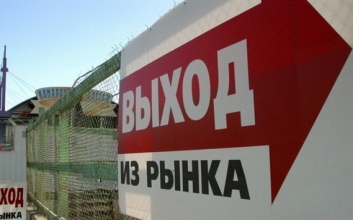Small and medium enterprises in Belarus will pay for keeping jobs at unprofitable state-owned enterprises
 The situation has not changed
The situation has not changed

In 2015, small and medium businesses reduced their debt on loans. High interest rates and a slowdown in business activity were the main reasons why the demand for new loans had decreased in this sector. Inefficient resources redistribution mechanism has deprived the economy of the prospects to come out of the crisis however will help keeping jobs at large state-owned enterprises.
According to the National Bank, on June 1st, 2015, SME’s payable on loans totalled USD 5.4 billion. Thanks to the devaluation of the national currency (in US Dollar terms) the national currency debt has reduced – net currency debt reduction totalled USD 199.3 million and BRY debt has reduced by BYR 4 billion compared with January 1st, 2015.
SME crediting has reduced due to high interest rates and the overall economic slowdown. Amid relative stability of the Belarusian rouble, interest rates on corporate rouble loans were often higher than 45% per annum. The need to service such loans has negatively affected the financial health of SMEs. As a result, SMEs have stopped attracting new loans after repaying the old ones and the overall slowdown in business activity has significantly reduced their needs in supporting current operations.
The situation with reduced SME crediting has demonstrated a number of structural problems in the Belarusian economy.
State-owned enterprises often obtain preferential loans at interest rates twice or thrice lower than for SMEs. In addition, a lion’s share of the enterprises eligible for preferential loans, are unprofitable and often unable to service their loans.
Interest rates for SMEs have not been reducing as fast as for other economic sectors. Moreover, by paying high interest rates, SMEs ‘pay’ for preferential loans for state-owned enterprises. Such lending mechanism redistributes resources from efficient enterprises in favour of unprofitable state-owned enterprises, whose main task is to ensure the employment in the economy. During a recession, SMEs become the main driver of the economy, which generates new jobs. However, in Belarus, the state has focused on maintaining inefficient state enterprises, rather than providing support for SMEs. As a result, the number of SMEs would reduce, the economy would lose some new jobs, and the budget would receive fewer revenues, while the government would be able to report about preserving jobs at major industrial giants.
Amid high interest rates, SMEs have focused on repaying old debts to cut their costs. By redistributing loans in favour of inefficient enterprises, the state may lose new jobs and the prospects for recovery from the crisis, but it will solve the problem with employees at SOEs.
Subscribe to our newsletter




Situation in Belarus
Constitutional referendum: main consequences


 Video
Video
How to count the political prisoners: are the new criteria needed?


 Video
Video
Paternalism In Decline, Belarusian Euroscepticism, And The Influence Of Russia


 Video
Video












